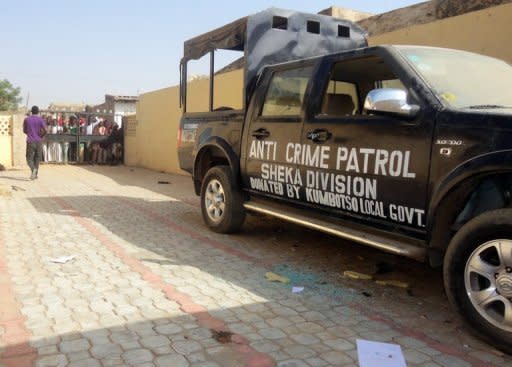Nigerian city of Kano rocked by explosion
An explosion on Sunday rocked an area near a theatre at a university in the Nigerian city of Kano used by Christian students for services, a security source and residents said. "There was a huge explosion at the open air theatre close to the entrance of the old site of the university during a church service by Christian students," the source said. Residents also reported hearing gunfire. Details were not yet clear, including whether there were casualties. Soldiers cordoned off the area and were not allowing residents through. Dozens of students usually attend services at the theatre at Bayero University on Sundays. Islamist group Boko Haram claimed January 20 attacks in Kano, the largest city in Nigeria's mainly Muslim north, when coordinated bombings and shootings left at least 185 dead, the extremists' deadliest attack yet. On Thursday, bomb attacks at newspaper offices in the capital Abuja and the northern city of Kaduna left at least nine people dead. The group has previously targeted churches, including on Christmas day when at least 44 people were killed in a bombing at a church outside the capital Abuja. A bombing on Easter Sunday in Kaduna near a church that killed at least 41 people was a stark reminder of the Christmas attacks, but Boko Haram is not known to have claimed it. Boko Haram's increasingly bloody insurgency has left more than 1,000 people dead since mid-2009. Police and soldiers have often been the victims of such attacks, though Christians have been targeted as well. It also claimed responsibility for an August suicide attack at UN headquarters in Abuja which killed at least 25 people. Nigeria, Africa's most populous nation and largest oil producer, is roughly divided between a mainly Muslim north and predominately Christian south. Boko Haram initially claimed to be fighting for the creation of an Islamic state in Nigeria's north, but its demands and structure have become less clear in recent months. It is believed to have a number of factions, including those with political motives as well as a hard-core Islamist wing. Criminal groups are also believed to have carried out violence under the guise of Boko Haram. An attempt to hold indirect dialogue between the group and the government in March collapsed, with a mediator quitting over leaks to the media and a spokesman for the Islamists saying they could not trust the government. President Goodluck Jonathan, during a visit to the newspaper office in Abuja on Saturday hit by Thursday's suicide attack, did not answer directly when asked whether dialogue was necessary to stop the violence. "You may dialogue, you may not dialogue depending on the circumstances," Jonathan told reporters. "But we will exploit every means possible to bring this to an end."



